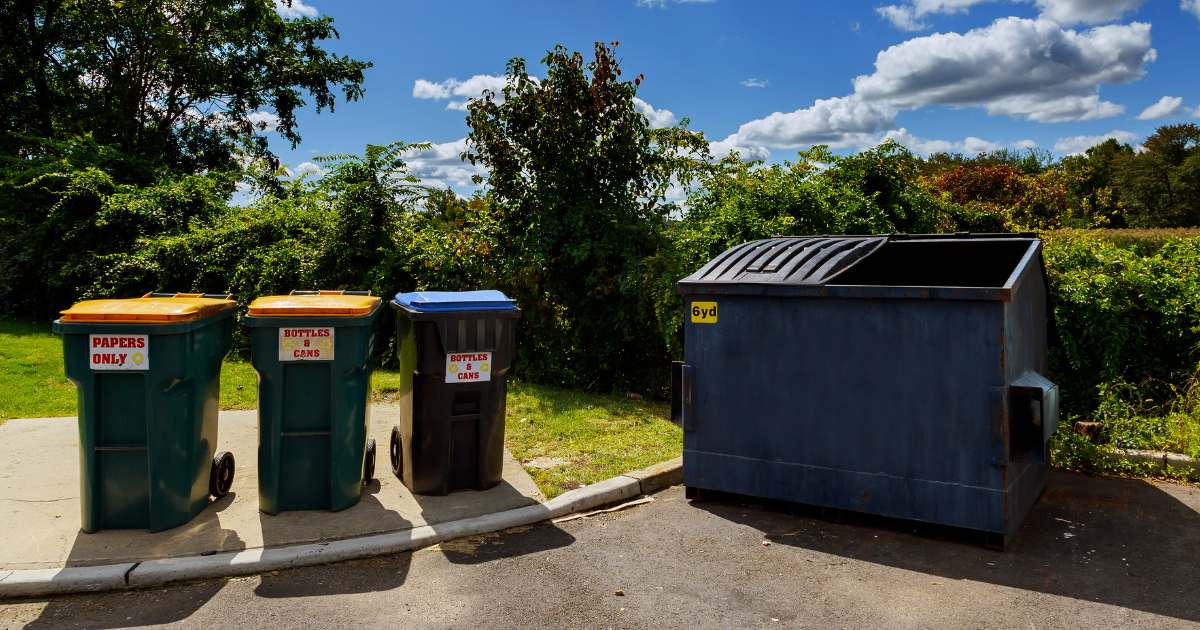When considering dumpster rental services for managing waste during home renovations, construction projects, or cleanouts, understanding potential hidden fees is crucial.
While dumpster rental offers convenience in waste disposal, additional costs beyond the initial quote can impact your budget unexpectedly.
It’s essential to be aware of these potential fees to budget effectively and ensure a smooth rental experience. In this guide, we’ll explore common hidden fees associated with dumpster rental services, how they can affect your overall cost, and tips for navigating the rental process to minimize surprises.
By understanding these factors, you can make informed decisions and choose a dumpster rental service that meets your needs without breaking your budget.
Environmental or fuel surcharges
Charging for fuel makes sense since it covers the cost of delivering the dumpster to your location. Typically, this fee ranges from 5-8% of the total, though some companies may inflate it to 35% under the guise of “fuel and environmental” fees.
It’s crucial to have these fees clearly outlined in your initial estimate. If not included, inquire about the rate, especially if your location falls outside their standard service radius.
For more on delivery considerations, check out our article on How Long Can You Keep a Dumpster Rental?
Taxes
While it’s expected to pay taxes on most items, dumpster rental taxes might not be included in your initial quote. State and local tax rates can significantly impact your bill, adding up to 13.25% or more in certain areas.
To avoid surprises, ask rental companies about their tax policies and whether taxes are included in their quotes. For more details on rental charges, explore Hidden Fees in Dumpster Rentals.

Trip distance fees
Sometimes, trip distance fees are added if the location turns out to be farther than expected or the job site is tricky to get to. Rural areas, in particular, can have mileage charges, so it’s a good idea to clarify this ahead of time.
Ensure the rental company is aware of any obstacles that could hinder dumpster delivery to avoid unexpected charges.
Pick-up fee
While standard pick-up fees are typically transparent, charges for early, late, or additional pick-ups outside normal schedules can catch renters off guard.
If your project requires flexible pick-up arrangements, confirm these terms with the rental company beforehand to anticipate any additional fees.
To understand scheduling better, refer to What You Need to Know About Dumpster Rental Services.
Damage waiver fees
A damage waiver fee protects against costs related to dumpster damage or downtime. These waivers usually have a cap, such as $500, and their inclusion can vary by rental company.
Ensure you understand if this fee is mandatory and what protection it provides before finalizing your rental agreement.

Concrete fees
Different types of debris incur varying disposal costs. For instance, concrete disposal generally commands a higher fee. It’s crucial to disclose all materials you intend to dispose of to avoid unexpected charges for special materials like concrete.
For more on what materials can and cannot go in a dumpster, visit What Can Go in a Dumpster Rental?.
Insurance coverage
Some rental companies may require insurance coverage for dumpster rentals. If insurance isn’t initially discussed, inquire about it to avoid surprises on your invoice.
Clear upfront communication ensures you know exactly what costs to expect, including optional insurance fees.

Seasonal fees
Certain seasons or weather conditions can affect dumpster rental pricing, especially in regions prone to harsh winters or extreme weather events.
During the quoting process, verify if any seasonal surcharges apply to your rental to avoid unexpected costs.
Excess tonnage
Estimating the amount of waste you’ll dispose of is crucial to avoid excess tonnage fees. Some rentals include a set tonnage limit, and exceeding this limit incurs additional charges.
Seek guidance from the rental company or waste broker to accurately estimate your waste volume and plan accordingly to minimize excess fees.
Frequently Asked Questions
What are environmental or fuel surcharges in dumpster rental?
Environmental or fuel surcharges cover the cost of fuel needed to deliver the dumpster to your location. These fees can range from 5-8% on average but may be higher with some companies. It’s essential to clarify these charges upfront and ensure they are clearly stated in your estimate.
Are taxes included in dumpster rental quotes?
Taxes can significantly impact your final bill but may not always be included in initial quotes. State and local tax rates vary, potentially adding up to 13.25% or more in some areas. Always ask rental companies about tax policies to avoid unexpected costs.
What are trip distance fees in dumpster rental?
Trip distance fees are added when a location is farther than anticipated or if access to the job site is difficult. Rural areas often incur mileage fees. It’s important to discuss potential trip distance fees and any obstacles with the rental company beforehand.
Are there additional fees for early or late pick-ups of dumpsters?
While standard pick-up fees are usually disclosed, charges for early, late, or additional pick-ups outside regular schedules can incur additional costs. Clarify these terms with the rental company to understand any potential fees.
What is a damage waiver fee in dumpster rental?
A damage waiver fee protects against costs associated with dumpster damage or downtime. It typically has a limit, such as $500. Confirm if this fee is mandatory and what protection it provides before renting.
Do I need to pay extra for disposing of specific materials like concrete?
Certain materials, such as concrete, incur higher disposal costs. Ensure all materials you plan to dispose of are disclosed to avoid unexpected charges for special disposal requirements.
Is insurance coverage required for dumpster rentals?
Some rental companies may require insurance coverage. If insurance isn’t discussed upfront, inquire about it to understand potential costs and coverage options.
Are there seasonal fees for dumpster rentals?
Seasonal factors, like harsh weather conditions, can affect dumpster rental pricing. Discuss any seasonal surcharges with rental companies during the quoting process to budget accordingly.
Conclusion
Navigating dumpster rental services involves more than just choosing a container size and rental duration. Hidden fees can significantly impact your overall cost if not understood upfront.
By familiarizing yourself with potential charges like environmental surcharges, taxes, trip distance fees, and others, you can budget effectively and avoid surprises on your final invoice.
Always clarify fees, discuss specific needs with rental companies, and seek transparent pricing to ensure a smooth and cost-effective dumpster rental experience for your project needs.
